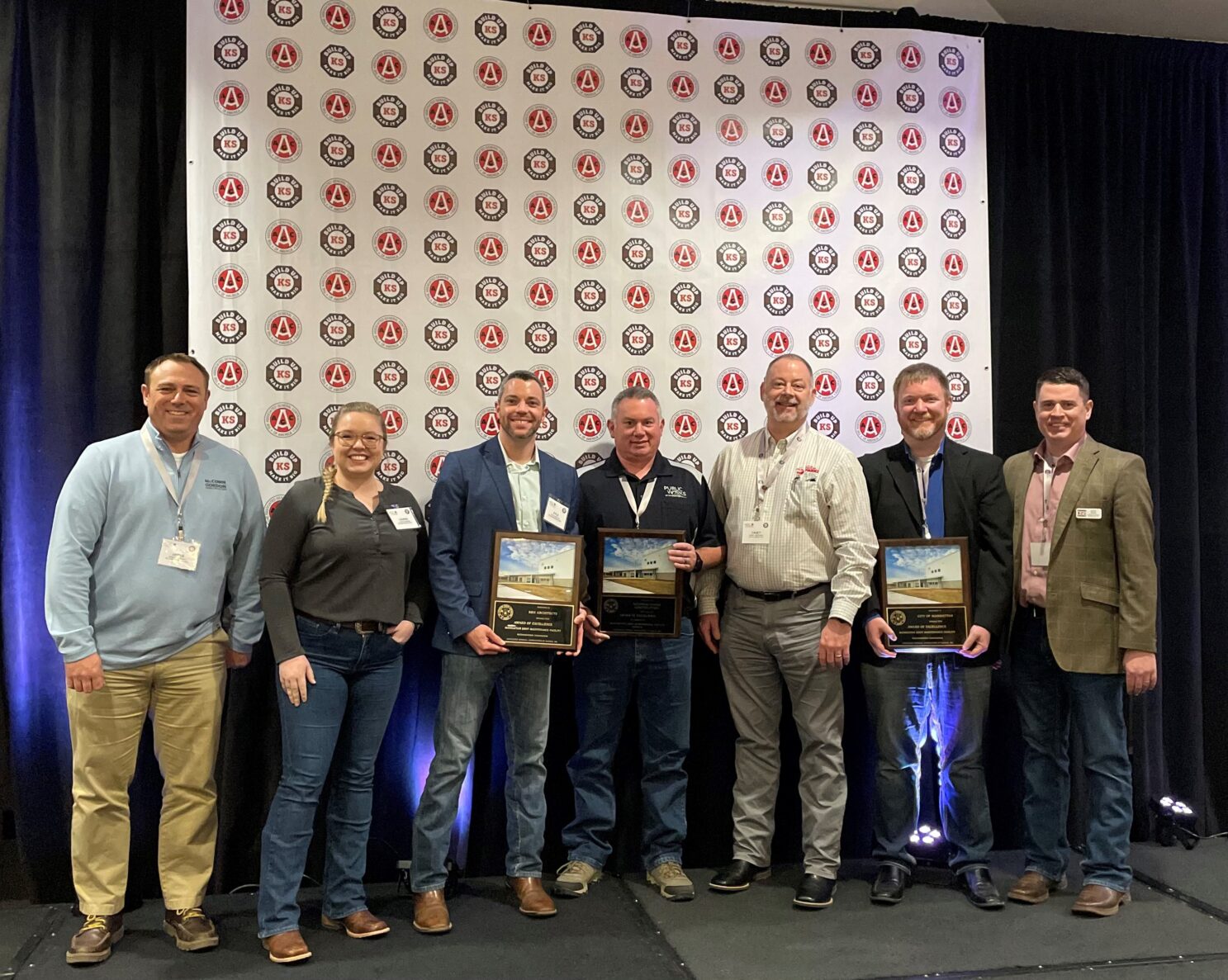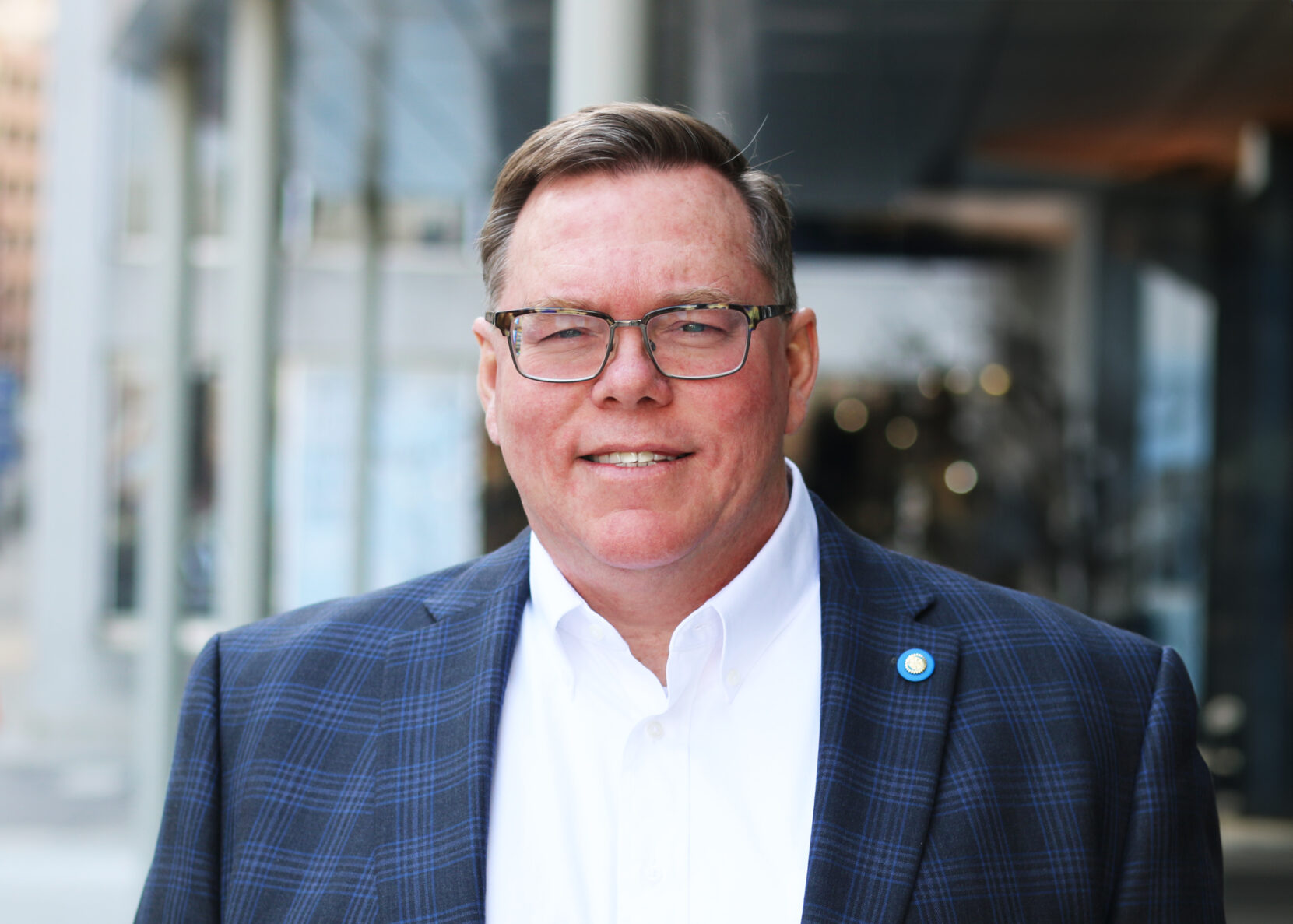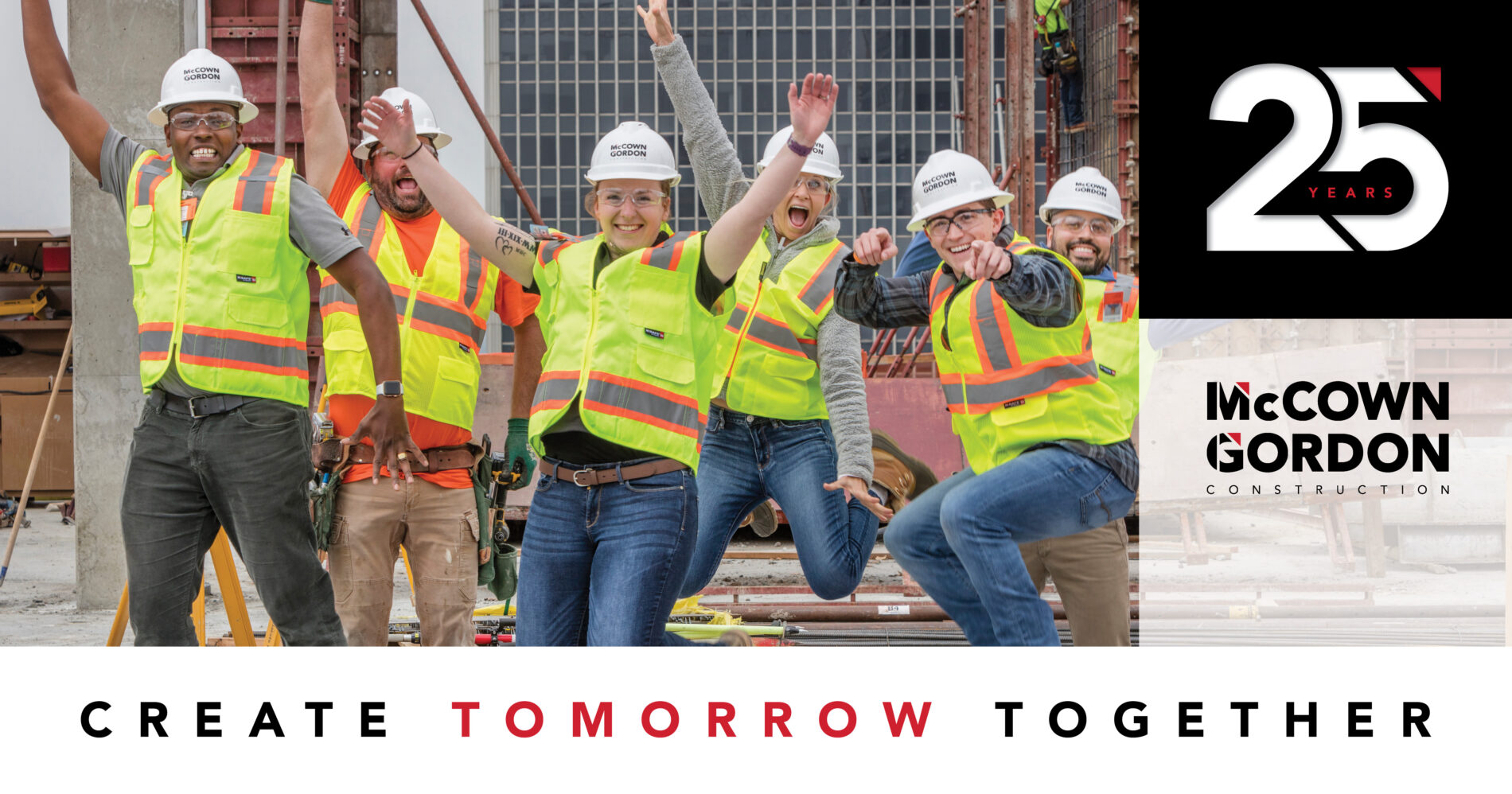McCownGordon Launches Mentor Protégé Program
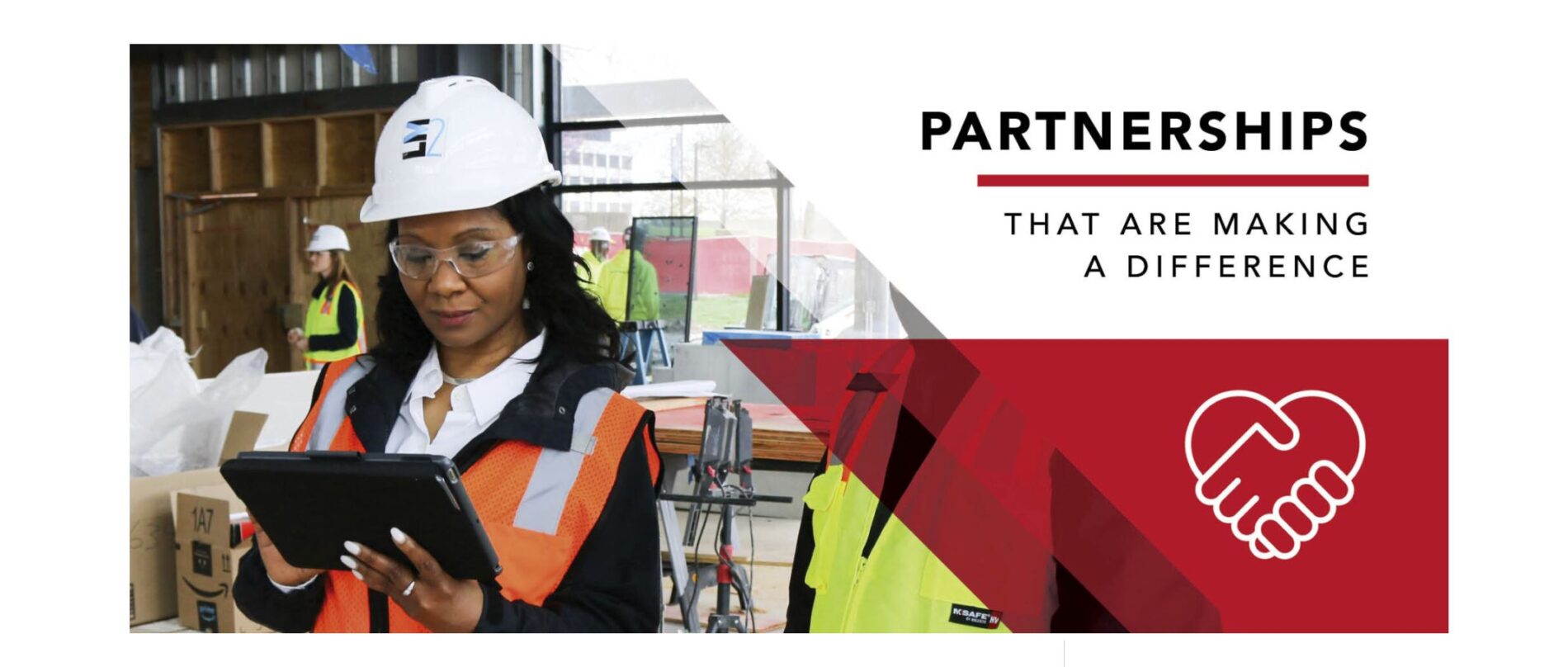
Disparities between M/WBE and non-M/WBE construction firms in the US have been a long-standing issue, often tied to broader economic and social inequalities. In 2016, the City of Kansas City Missouri completed a Disparity Study on minority and woman owned business enterprises (M/WBE). This study indicated how discrimination in the Kansas City Missouri market and throughout the wider economy affects the ability for minorities and women to fairly and fully engage in the City’s prime contract and sub-contract opportunities. The City of Kansas City Missouri implemented a Mentor Protégé Program to help reduce the disparities experienced by M/WBE trade partners. In our ongoing commitment to diversity, equity and inclusion, McCownGordon also initiated this program in our Kansas and DFW offices.
2023 selection for the McCownGordon Mentor Protégé program
There are various forms of disparities mostly experienced by M/WBE firms in the construction industry:
- Access to Opportunities and Contracts: Non-white construction firms, including those owned by Black, Hispanic, Asian, and Indigenous individuals, have historically faced challenges in accessing construction contracts, particularly larger and more lucrative projects. This is often due to a combination of factors such as limited networks, bias, and a lack of historical relationships within the industry.
- Capital and Funding: Non-white construction firms can struggle to secure the necessary financing to take on larger projects or expand their operations. Limited access to capital and loans can hinder their growth and competitiveness.
- Networking and Relationships: The construction industry relies heavily on relationships and networking. Historically, many decision-makers and industry influencers have been predominantly white, which can make it harder for non-white firms to establish the connections necessary for growth and success.
- Bid Selection Process: The process through which construction contracts are awarded can sometimes lack transparency and be biased, unintentionally or intentionally favoring established white-owned firms. This can lead to non-white firms being excluded from opportunities.
- Certifications and Qualifications: Some contracts and opportunities require specific certifications, qualifications, or experience. Non-white firms might face challenges in obtaining these credentials, particularly if they haven’t had equal access to opportunities.
- Representation and Advocacy: The construction industry’s leadership and decision-making bodies may lack diverse representation. This can limit the influence and advocacy efforts of non-white firms within the industry.
- Discrimination and Bias: Discrimination and bias can affect non-white firms at various stages, from securing financing to winning contracts. These biases can be overt or subtle but contribute to systemic disparities.
- Community Impact: Disparities in construction can have broader community-level effects. When non-white construction firms face challenges, communities may miss out on the economic benefits and local development that construction projects can bring.
These disparities negatively impact the ability of M/WBE firms to form, to grow, and to succeed.
There is compelling evidence regarding the existence of race and gender barriers in the construction industry.
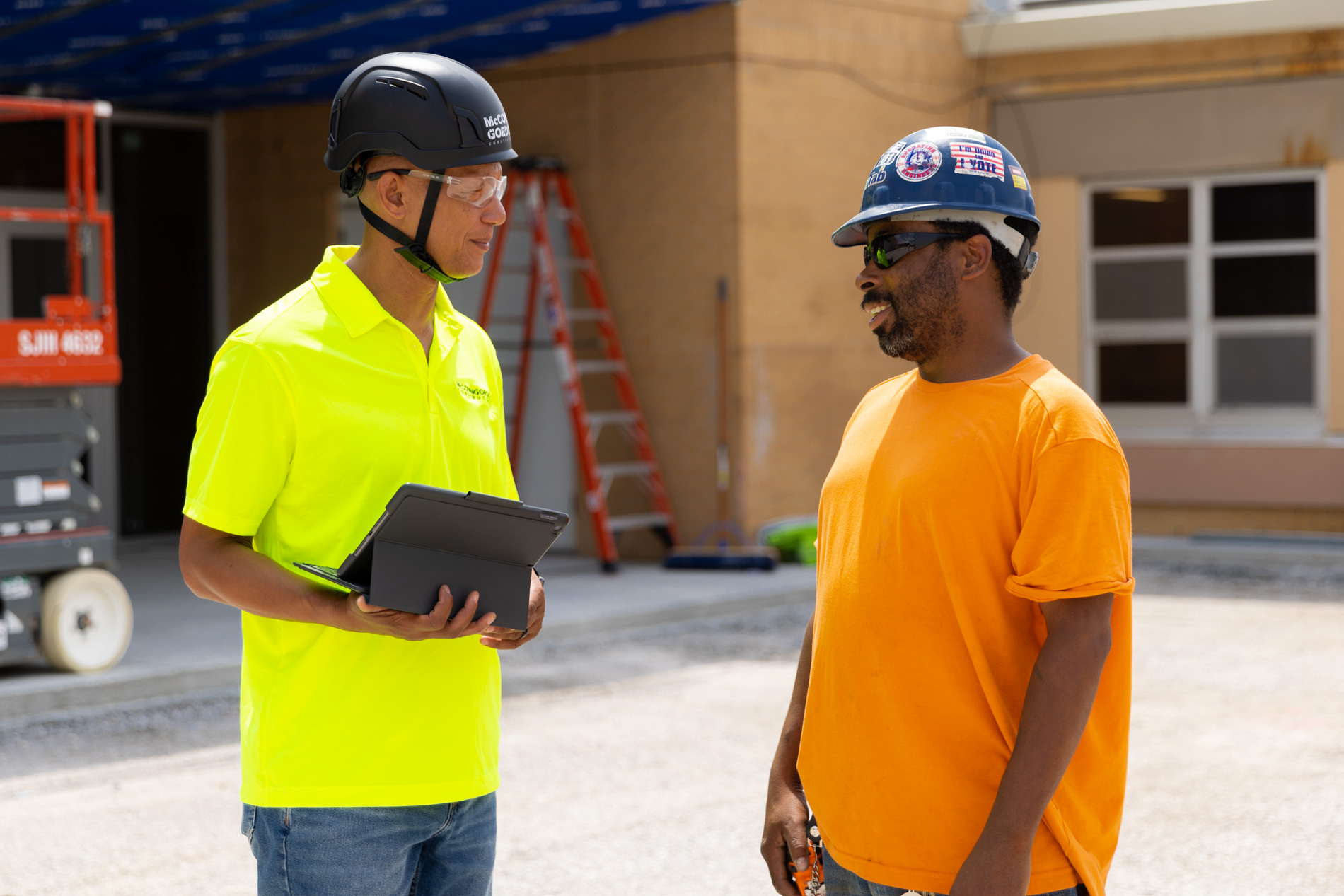
McCownGordon is committed to diversity, equity, inclusion (DEI) – creating a diverse and inclusive environment where everyone is valued, feels welcomed and has the opportunity and resources to be successful. As part of our DEI strategy, our supplier diversity efforts are essential to supporting underrepresented businesses, which results in stimulating the economy in the same communities where those businesses reside. We are driven to successfully execute supplier diversity efforts that result in maximizing the utilization and capacity of underrepresented businesses/workforce members.
In 2020, the were 738,281 construction firms in the United States. Of those firms, 102,239 were minority-owned and approximately 95,976 were women-owned, all accounting for only 27% of the market. For M/WBE firms to increase their market share, it is imperative to establish platforms that provide resources and opportunities for success.
In April 2023, McCownGordon adopted the City of Kansas City’s framework (which was modeled after State and National standards) and launched a mentor protégé program across our offices in Missouri, Kansas and Dallas-Fort Worth. This program provides guidance, development, and access to business-related networks to M/WBE firms and assists them with moving into non-traditional areas of work and/or competing in the marketplace, resulting in performance enhancement, knowledge and market presence in the construction industry.
“A mentor protégé program plays a crucial role in empowering M/WBE trade partners to compete on a level-playing-field.” said Willy Pegues IV, McCownGordon’s vice president of diversity, equity, & inclusion.
How the program builds inclusive prosperity in the communities we serve.
- Job Creation and Economic Growth: when businesses receive mentoring and support, they are more likely to succeed and expand. As they grow, new job opportunities for local residents and economic growth within their community.
- Strengthening the Local Economy: Successful businesses generate revenue and contribute to the local tax base. This increased economic activity can lead to improved infrastructure, public services, and community facilities, benefiting everyone in the area.
- Entrepreneurship and Innovation: Mentoring encourages entrepreneurship by providing aspiring business owners with guidance and resources. This can lead to the emergence of new and innovative businesses, fostering a culture of creativity and adaptability within the community.
- Community Identity: Small businesses often contribute to the unique character and identity of a community. By supporting and mentoring these businesses, the community can preserve its distinct character and promote local traditions.
- Skill Development and Employment: businesses can provide valuable training and skill development opportunities for local residents. As these businesses receive mentorship, they are better equipped to provide on-the-job training, internships, and apprenticeships, enhancing the skill sets of community members.
- Local Supply Chain: Mentored businesses may have the opportunity to expand their operations and supply chains. This can lead to partnerships with other local suppliers, strengthening the local economy and reducing dependence on external sources.
- Community Engagement: Small businesses often play an active role in community events and initiatives. When these businesses receive mentorship, they may become more engaged in community activities, contributing to a stronger sense of community cohesion and involvement.
- Social Responsibility: Mentoring can encourage small businesses to adopt socially responsible practices. This could include supporting local charities, promoting sustainable practices, and engaging in initiatives that benefit the community as a whole.
- Diverse Business Landscape: A thriving small business sector, supported by mentoring, can lead to a diverse range of goods and services available locally. This diversity enriches the community experience and reduces the need for residents to travel to neighboring areas for their needs.
- Knowledge Sharing: Successful business owners who act as mentors can share their experiences and insights with the community, helping others avoid common pitfalls and challenges. This collective knowledge can strengthen the overall business environment.
- Community Well-Being: A prosperous business region can enhance the overall well-being of the community. It provides residents with convenient access to essential goods and services, contributing to a higher quality of life.
McCownGordon’s Mentor Protégé Program provides a number of key benefits for M/WBE trade partners in the community, which align with the company’s core values. “It’s imperative that we invest in the success of our trade partners in the communities where we live and work,” said Pegues. “This program helps build capacity for underrepresented trade partners in the community, gives them the opportunity to observe best practices of a larger firm, opens up our understanding of challenges these trade partners encounter and allows us to learn how we can be better partners.”
The program is designed to be driven by the trade partner based on their needs including management, technical, business development and contracting assistance. After discussing their support needs and goals, McCownGordon will lend its thought-leaders and industry expertise to assist the trade partner in achieving their goals/objectives. Over the course of the agreement, there will be check-ins assessing the the relationship and progress on meeting the goals and objectives.
“We are looking for companies that are driven and committed to taking their business to the next level during and beyond the mentor protégé program. For this program to be successful, both parties must be willing to trust and learn from each other throughout this relationship,” added Steve Levy, the company’s chief operating officer.
LaTasha McCall, president and owner of LM2 Construction & Consulting, who participated as McCownGordon’s mentee in 2018-2021 as part of Kansas City’s Mentor Protégé Program said, “I want to commend members of the McCownGordon team for their guidance, counsel, and support, which contributed to enhancing my business and network as a General Contractor.”
We’re excited to announce this year’s selection of the McCownGordon Mentor Protégé program with three MWDBE contractors based in Missouri, Kansas and Dallas-Fort Worth.
 CJ Industries A certified woman-owned and minority-owned business enterprise, CJ Industries was established in 2013 by Mindy Rocha in Kansas City, KS. They were named the 2019 Kansas Minority Owned Construction Firm of the Year and are listed as on the Top 25 Minority Owned Construction Firms in Kansas City by Ingram’s Magazine.
CJ Industries A certified woman-owned and minority-owned business enterprise, CJ Industries was established in 2013 by Mindy Rocha in Kansas City, KS. They were named the 2019 Kansas Minority Owned Construction Firm of the Year and are listed as on the Top 25 Minority Owned Construction Firms in Kansas City by Ingram’s Magazine.
 Global Rock Enterprise, LLC Established in 2019, Global Rock Enterprise, LLC. is a certified minority-owned business enterprise based in Kansas City, MO. has vast industry familiarity and technical expertise in the areas of electrical data systems and installations, relating to multifamily construction and real estate rehabilitation. They were named 2022 Small Business of the year by the Greater Kansas City Chamber of Commerce.
Global Rock Enterprise, LLC Established in 2019, Global Rock Enterprise, LLC. is a certified minority-owned business enterprise based in Kansas City, MO. has vast industry familiarity and technical expertise in the areas of electrical data systems and installations, relating to multifamily construction and real estate rehabilitation. They were named 2022 Small Business of the year by the Greater Kansas City Chamber of Commerce.
Picasso Contractors, LLC Picasso LLC. is a certified Minority Owned and Woman Owned Business Enterprise. Based in Dallas, TX, they are a demolition contractor founded in 2015. With a reputation for flexibility and reliability, they are often known as the top demolition contractor in Texas.
In summary, establishing a mentor-protégé program in the construction industry is a strategic decision that goes beyond our business interests. It helps foster a more inclusive and innovative industry while also promoting social responsibility and community engagement.



